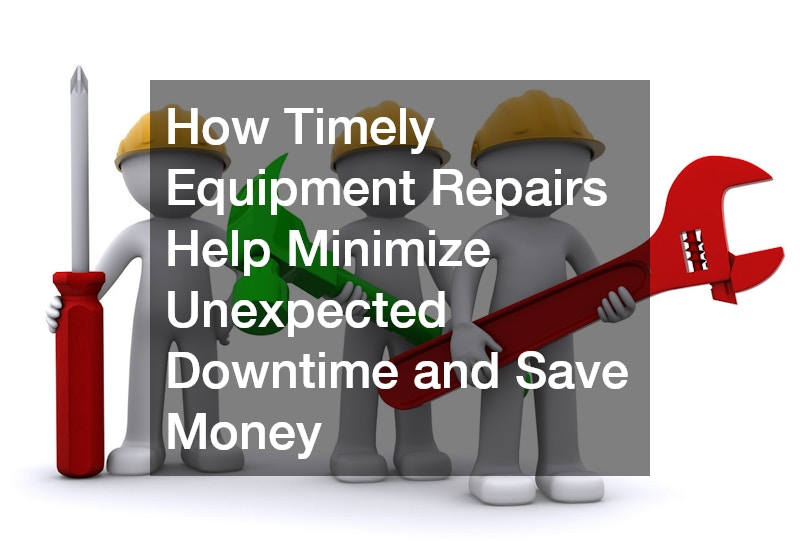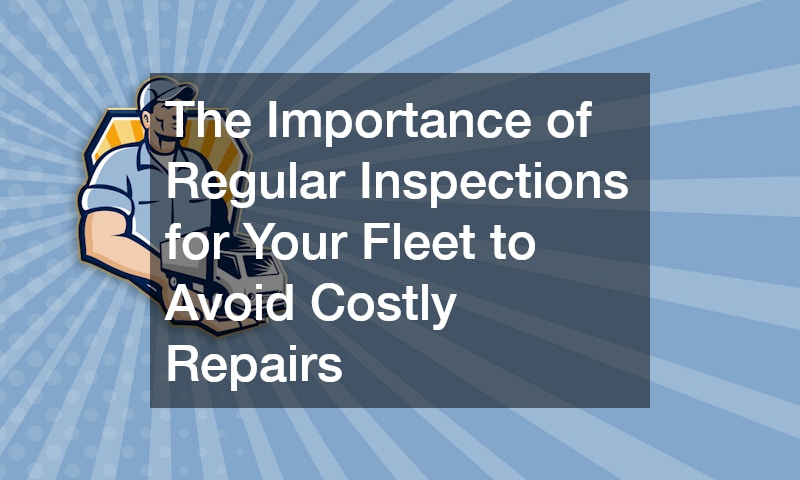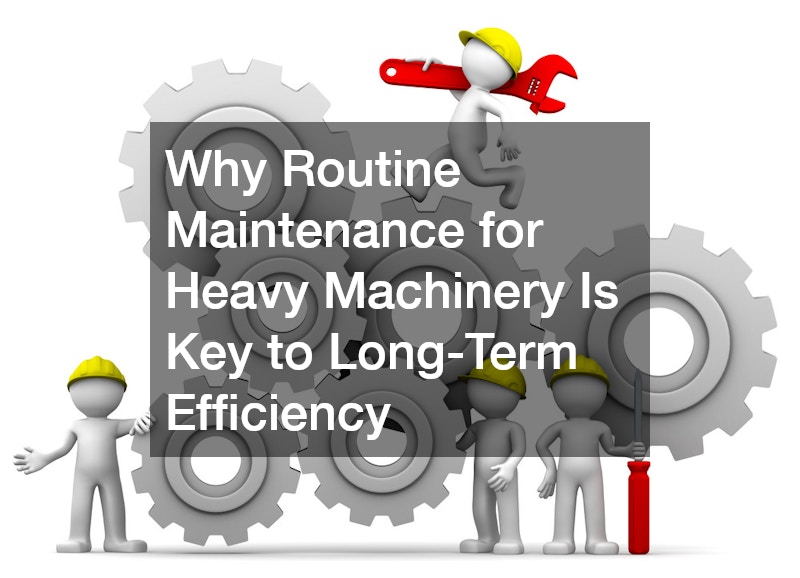Maintaining an efficient and cost-effective fleet requires diligence and strategic planning. For business owners and fleet managers, understanding key fleet maintenance tips can have a significant impact on minimizing expenses and maximizing resource utilization. In this article, we explore various approaches and strategies that emphasize the role of regular maintenance and timely repairs in enhancing fleet performance.
The importance of proactive measures cannot be overstated in fleet management. Without them, unexpected breakdowns and costly repairs can disrupt daily operations, leading to losses in both time and revenue. By implementing the following fleet maintenance tips, businesses can ensure that they are operating at peak efficiency.
From routine inspections to specialized repairs, each section of this article highlights critical areas of fleet maintenance that require attention. Embracing these practices will not only save your company money but also extend the lifespan of your vehicles and equipment.
How Timely Equipment Repairs Help Minimize Unexpected Downtime and Save Money

Timely equipment repairs are crucial in preventing prolonged downtime and associated losses. When equipment fails unexpectedly, it can halt operations, leading to expensive delays and resource wastage. Proactive fleet maintenance tips include scheduling regular check-ups to identify and address potential issues early on.
For heavy machinery, even minor issues can compound over time, resulting in major repair costs. By investing in timely repairs, businesses can prevent small problems from escalating, thus saving significantly on repair bills. Using services such as heavy machinery repair ensures that your fleet remains operational with minimal interruptions.
Additionally, a well-maintained fleet enhances reliability, customer trust, and brand reputation. When clients can depend on timely deliveries, businesses can build stronger relationships and repeat patronage. Ultimately, these strategic interventions benefit your bottom line, making timely equipment repairs an indispensable component of fleet management.
The Importance of Regular Inspections for Your Fleet to Avoid Costly Repairs

Regular inspections are a cornerstone of effective fleet maintenance. By diligently conducting routine checks, fleet managers can identify wear and tear before they result in severe damage or a call to an accident lawyer. Regular inspections encompass several parts of the vehicle, including the engine, brakes, tires, and steering systems.
Fleet maintenance tips suggest incorporating a checklist-based approach, where each vehicle is thoroughly reviewed before use. This practice allows for early detection of issues such as tire wear or inadequate fluid levels, preventing costly on-road breakdowns. Furthermore, trained personnel can conduct inspections, delivering skilled insights into potential areas of concern.
This preventative approach helps reduce unplanned service interruptions significantly. For businesses relying on fleets for daily operations, minimizing downtime translates directly into maintained schedules and fulfilled commitments. Consistent inspections, therefore, serve not only as a cost-saving measure but also as a commitment to efficiency and safety.
Why Routine Maintenance for Heavy Machinery Is Key to Long-Term Efficiency

Heavy machinery plays a pivotal role in industries such as construction and logistics. Maintaining these machines in optimal condition ensures long-term efficiency and effectiveness. Fleet maintenance tips for heavy machinery highlight the necessity of frequent checks and services to extend equipment life.
Ignoring routine maintenance can lead to a decline in the performance of heavy machinery, making it essential to address issues promptly. Regular lubrication, cleaning, and replacement of worn-out parts are simple yet effective strategies that prevent more severe malfunctions. Heavy machinery repair services can ensure your equipment operates smoothly.
Investing in routine maintenance also reduces operational risks and potential accidents, which could result in additional costs or liability. Efficient machinery not only boosts productivity but also enhances safety, making regular maintenance indispensable. These measures serve as a proactive defense against unanticipated expenses, ensuring long-term savings.
How Quick Windshield Fixes Can Prevent Costly Fleet Maintenance Issues
Windshield-related issues, although seemingly minor, can lead to significant maintenance costs if neglected. Fleet maintenance tips underscore the importance of addressing windshield cracks and chips promptly to prevent further damage. Windshield repair services are essential to maintaining visibility and structural integrity.
Small chips can quickly escalate into larger cracks, compromising the safety of the vehicle and its occupants. In addition to being a safety hazard, extensive windshield damage can result in costly replacements. By opting for quick windshield repair, fleet managers can minimize repair costs and avoid legal liability.
Furthermore, maintaining clear windshields contributes to improved operational efficiency and safety. Drivers can perform their duties more effectively without vision impairment, which enhances fleet reliability. Investing in quick fixes prevents minor issues from becoming expensive problems, benefiting the fleet in the long run.
Maximize Fleet Longevity: The Role of Preventive Maintenance in Reducing Repair Costs

Preventive maintenance is an investment in the longevity and reliability of a fleet. By systematically addressing potential issues before they become significant problems, businesses can shield themselves from recurring repair expenses. Fleet maintenance tips recommend establishing a preventive maintenance schedule for all vehicles and equipment.
This approach involves routine inspections, fluid replacements, tire rotations, and other critical interventions aimed at maintaining optimal operational status. A consistent preventive maintenance regimen helps extend the lifespan of vehicles and reduces the likelihood of unexpected breakdowns. This proactive strategy decreases long-term repair costs significantly.
Moreover, preventive maintenance fosters a culture of care and responsibility, aligning company operations with high safety and performance standards. The result is a well-preserved fleet that meets business needs efficiently. This proactive stance is a fundamental pillar of successful fleet management, driving both cost savings and operational excellence.
Boosting Efficiency: Why Scheduling Regular HVAC and Equipment Servicing Is Crucial
Temperature control within vehicles plays a critical role in maintaining driver and passenger comfort and safety. Fleet maintenance tips emphasize the importance of regular HVAC repair services as part of equipment servicing schedules. Properly maintained systems ensure that heating and cooling functions operate optimally at all times.
Besides driver comfort, the efficient operation of HVAC systems is crucial for sensitive cargo requiring specific temperature conditions. Regular checks, including testing thermostats and cleaning filters, help to prevent HVAC failures. Proactive servicing can help avoid costly emergency repairs and preserve customer confidence.
Efficient HVAC systems conserve energy and reduce the load on the vehicle’s engine, contributing to lower fuel costs and emissions. By integrating HVAC servicing into routine maintenance schedules, fleets can enhance their operational efficiency. This ensures the preservation of resources and provides a competitive edge in the market.
How Auto Body and Small Repairs Can Save Your Fleet from Major Damage
Minor dings, scrapes, and dents may seem negligible, but over time, they can lead to major structural issues. Regular auto body repairs are integral to fleet maintenance tips, helping prevent small imperfections from developing into costly repairs. By addressing these issues immediately, businesses can safeguard their fleet investment.
The preservation of vehicle exteriors enhances visual appeal and reduces the risk of corrosion and reduced integrity. Professional auto body repair services can restore vehicles to their best condition, ensuring they remain presentable and functional. This proactive approach helps maintain the vehicle’s value and avoids significant repair expenditures down the line.
Additionally, well-kept vehicles contribute to a positive brand image and an ongoing commitment to safety. Employees take pride in operating vehicles maintained to high standards, fostering a sense of accountability. These small but impactful repairs prevent long-term damage, optimizing fleet performance and strengthening the bottom line.
Reducing Unexpected Costs with Proper Garage Door and Equipment Maintenance
Fleet operations often extend beyond vehicles to include garage facilities and equipment maintenance. Ensuring proper functioning of garage doors is an essential yet commonly overlooked aspect of operational efficiency. Fleet maintenance tips include integrating garage door repair into the comprehensive maintenance plan.
Regular inspections of garage doors and equipment ensure they operate smoothly, avoiding costly repairs and interruptions. Unexpected malfunctions not only lead to repair costs but also disrupt operations, affecting fleet schedules. Routine services prevent door breakdowns, providing secure storage and accessibility for fleet operations.
Well-maintained garage facilities provide a solid foundation for fleet management, facilitating seamless transition and deployment of vehicles. By investing in proactive maintenance, businesses can significantly lower unexpected costs related to facility management. This holistic approach to fleet maintenance underlines the importance of covering all potential risk areas.
Streamlining Operations: The Benefits of Local Forklift Services for Your Facility
In facilities handling extensive cargo movement, forklifts are indispensable for daily operations. Engaging with local forklift services provides critical support in maintaining these essential vehicles. Fleet maintenance tips recommend partnering with experienced providers to ensure efficient forklift operation and management.
Local forklift services bring specialized expertise in equipment care and can handle routine maintenance and emergency repairs efficiently. Their proximity allows for rapid response times, minimizing downtime and keeping operations on schedule. Reliable forklift performance supports broader company goals, enhancing logistical management.
Furthermore, well-maintained forklifts optimize handling speed and safety within facilities, reducing the risk of accidents and operational bottlenecks. This seamless integration into maintenance schedules ensures that all equipment is ready to meet demands continually. Engaging with reputable local forklift services is an investment in operational continuity and efficiency.
Preventative Measures for Heavy Equipment That Save You Time and Money
Heavy equipment constitutes substantial investments, making preventive measures vital in safeguarding assets. Fleet maintenance tips advocate for regular upkeep through preemptive care routines, ensuring that heavy equipment remains functional and reliable. This proactive strategy involves systematic inspections and timely interventions.
Routine maintenance such as camshaft regrinding, oil changes, and filter replacements helps sustain engine performance and extend equipment lifespan. Engaging with specialized service providers helps ensure maintenance activities are conducted to the highest standards. Preventive measures avert costly breakdowns, saving time and rescuing operational budgets.
Additionally, a well-maintained fleet minimizes risk factors associated with mechanical failure, including project delays and legal liabilities. By mitigating these factors through preventive care, businesses can protect their interests effectively. The benefits of preventive maintenance transcend cost savings, reinforcing fleet safety and reliability.
How Routine Utility Equipment Maintenance Can Save Your Business Big Bucks
Utility equipment upkeep plays an essential role in ensuring uninterrupted service deliveries. Fleet maintenance tips recommend adopting systematic routines that accommodate regular utility equipment repairs to prevent service disruptions. By maintaining full operational readiness, businesses can avert costly service outages.
For utility equipment responsible for crucial functions, such as power generation or waste management, regular checks are indispensable. These checks encompass testing components, maintaining power and fuel systems, and conducting functional assessments to validate operational integrity. Proactively addressing potential issues avoids large-scale failures and repair expenses.
Moreover, well-maintained utility equipment bolsters reliability and customer satisfaction, enhancing the company’s competitive advantage. A robust maintenance protocol ensures that services remain consistent without lapse, reinforcing trust with clients. By investing in routine care, businesses demonstrate a commitment to quality and performance excellence.
Why Camshaft Regrinding and Other Engine Services Matter for Fleet Efficiency
Engine efficiency is a key determinant of overall fleet performance, making engine services a priority in maintenance schedules. Camshaft regrinding and other specialized services are critical for maintaining optimum engine operation. Effective engine care embodies essential fleet maintenance tips that boost operational efficiency.
Over time, engine components can experience wear due to friction, leading to diminished performance and increased fuel consumption. Camshaft regrinding addresses these issues by restoring the camshaft’s precision, enhancing engine functionality. Regular engine services reinforce engine life expectancy and contribute to efficient fuel use.
Reliable engine performance ensures vehicles meet operational demands consistently, reducing the risk of breakdowns. With comprehensive engine care, fleet managers can maintain a reliable service rhythm, reinforcing productivity and service quality. Investing in engine services is a strategic move that optimizes fleet effectiveness and cost management.
How Working with the Right Towing Company Can Help Manage Fleet Down Time
Unexpected equipment failure or accidents can cause significant operational delays, highlighting the importance of a trustworthy towing partner. Fleet maintenance tips underscore the strategic benefits of collaborating with a reliable towing company to manage emergencies efficiently. Such partnerships facilitate quick recoveries in downtime incidents.
A responsive towing company offers timely solutions that prevent prolonged downtime and operational disruptions. They provide essential support in the rapid transport of non-operational vehicles to repair facilities, minimizing the impact on daily schedules. This process helps maintain continuity and enhances overall fleet management.
Moreover, mutual business relationships with towing services enhance cost-effectiveness through scalable solutions tailored to specific fleet needs. By ensuring swift responses to breakdowns, companies can mitigate the risk of extended operational interruptions. Collaborating with a reputable towing company is an essential component of comprehensive fleet strategies.
The longevity and efficiency of a fleet are heavily contingent on strategic maintenance practices. By incorporating the outlined fleet maintenance tips, businesses can address potential issues beforehand and optimize operational outcomes. From quick windshield repair interventions to partnering with the right towing company, every step offers vital contributions to fleet sustainability.
Embracing a proactive approach not only enhances vehicle performance but also provides financial savings by reducing repair costs and downtime. This diligent commitment to maintenance and preventive action defines a well-managed fleet. By investing in these practices, companies can ensure fleet reliability and operational excellence, delivering consistent value to their customers and stakeholders.
Ultimately, effective fleet management is an ongoing process that adapts to challenges and seizes opportunities through meticulous planning and execution. Maintaining and improving fleet operations aligns business goals with effective resource utilization and unwavering commitment to excellence.
